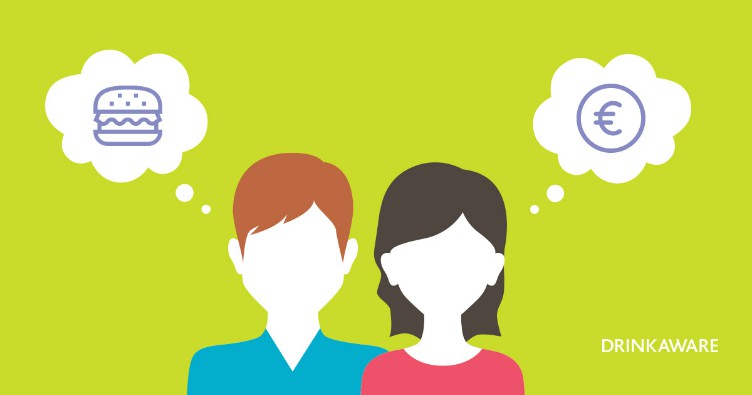- 300% rise in people visiting Drinkaware website in December 2018 compared to 2017
- Almost 90,000 people used the Drinkaware Drinks Calculator to understand their drinking throughout the Christmas season
- Physical health, fitness and mental health key drivers for behaviour change around alcohol
December 2018 saw over 110,000 people visit the Drinkaware website for evidence-based information about alcohol, tools to make it easier to understand their drinking habits and tips to make small, positive changes to drink in a less harmful way. This reflects a 300% increase from the same period in 2017. Online Drinks Calculator uses also increased dramatically by 490% when compared to last year.
These major increases indicate that the trend for taking proactive steps to improve personal health and wellbeing among adults in Ireland is still growing. The Drinkaware Index research found that physical health (61%), fitness (43%) and mental health (32%) are the top three motivations for Irish adults to drink less.
Sheena Horgan, Drinkaware CEO, said: “The recent threefold increase in the number of people taking the time to visit the Drinkaware website is a signal that attitudes and behaviours are shifting. People are actively looking for information, tools and tips to understand and change their drinking habits. With a slight decrease in adult per capita consumption, the progress we are seeing is small but moving in the right direction. Some celebration of small gains keeps the eye on the bigger prize (which for Drinkware is an Ireland where alcohol is not misused) and the maintenance of momentum alone has the potential to create a significant movement.
As the leading source for trusted alcohol information in Ireland, our website user statistics indicate that we have a crucial role to support this growing movement for drinking in a less harmful way. Irish adults are becoming more mindful about the way they consume alcohol and we have reason to believe this will continue, with our own Drinkaware Index findings clearly highlighting a willingness and appetite to change consumption levels.
Change isn’t always easy and consequently it isn’t always welcome. But I happen to believe there’s real value in adversity. Differing views can inspire debate. Broad debate can evoke reflection. And reflective introspection, especially when coupled with information, can trigger the desire and motivation to change.”


